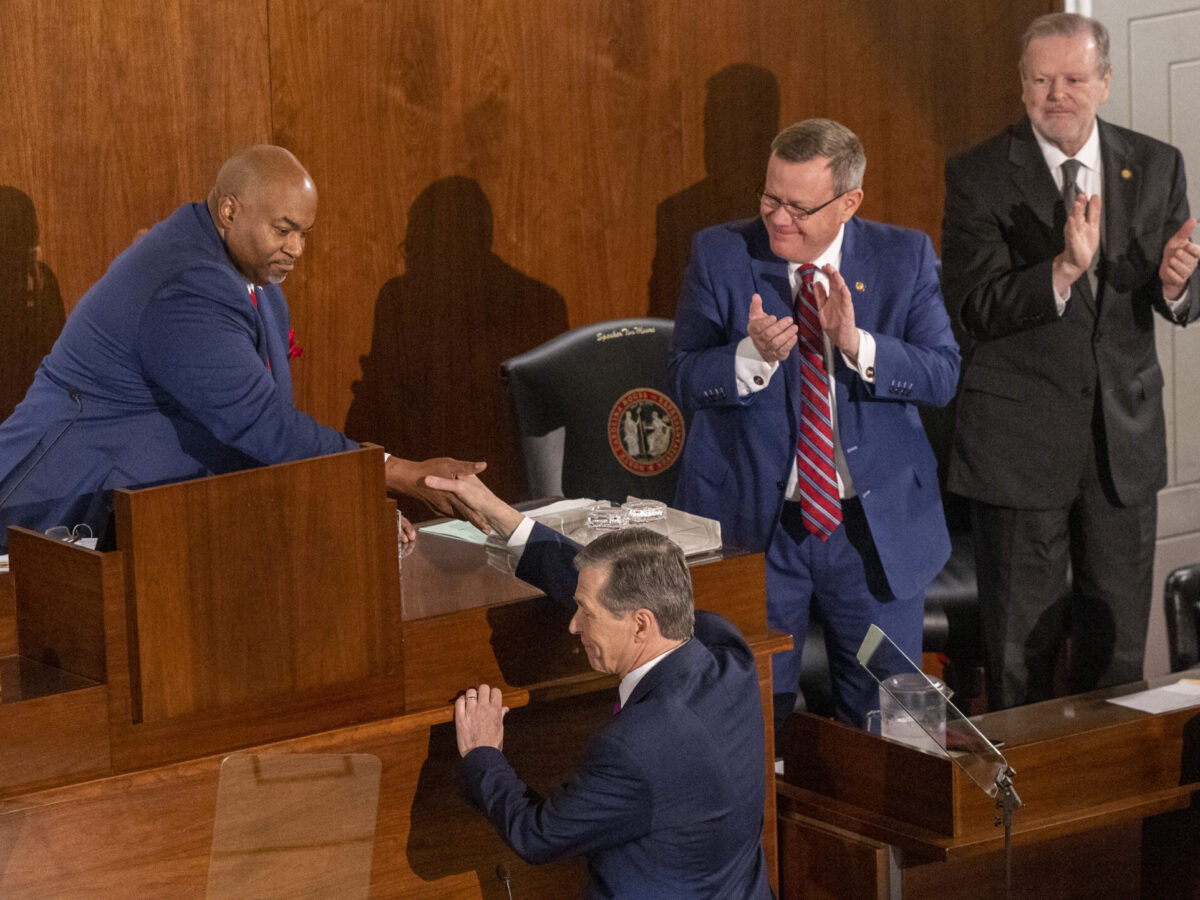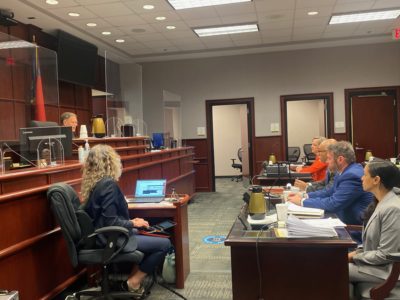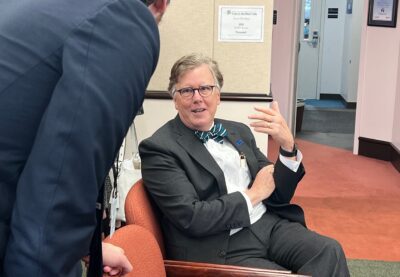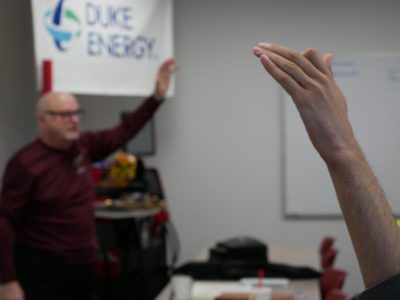

Share this story
- Education was a big topic during Democratic Gov. Roy Cooper's State of the State address Monday. He tackled everything from student mental health, early childhood education, community colleges, to Leandro. #nced
- "The court should uphold decades of bipartisan Supreme Court precedent that comes down on the side of the children, because that’s what really matters. The children," said @NC_Governor of Leandro during his State of the State address.
|
|
Education was on the mind of Democratic Gov. Roy Cooper as he gave the State of the State address Monday. During his speech, he touched on issues like mental health, early childhood education, and community colleges.
And just days after the N.C. Supreme Court stayed a lower court’s order requiring the transfer of millions of dollars to fulfill the state’s constitutional obligation on education, Cooper called out Republicans for their opposition in the Leandro case.
“Now, I know many of you on the Republican side of the aisle don’t believe the … Supreme Court should be able to order you to invest more in our children’s education to comply with the constitution,” he said. “But the court should uphold decades of bipartisan Supreme Court precedent that comes down on the side of the children, because that’s what really matters. The children.”
The Leandro case began nearly 30 years ago when families from five low-wealth counties sued the state, saying it was not meeting its obligation to educate all students equally. The state Supreme Court has previously said in the case that North Carolina’s children have a fundamental right to the “opportunity to receive a sound basic education” and that the state had not lived up to that constitutional requirement.
The former judge on the case, Judge David Lee, ordered the state to turn over more than a billion dollars to fund a comprehensive remedial plan aimed at ensuring that constitutional requirement. That decision went all the way back up to the Supreme Court, which ruled in late 2022 that Lee’s order should stand.
But that Supreme Court was majority Democrat. In last November’s election, the court flipped Republican, and just last week, the Supreme Court stayed Lee’s order while it hears challenges from the state controller. The controller would have to transfer the money in order for the comprehensive plan to be funded.
Cooper went on to say that his proposed budget for the biennium will fund the comprehensive plan.
“It gives teachers and principals double digit raises, it keeps the buses running, it helps kids with special needs, it keeps schools safe, it does not raise taxes and it balances the budget,” he said.
When speaking about early childhood education, Cooper introduced Rhonda Rivers, the regional director of curriculum and training for LeafSpring Schools in Charlotte, which provides services like nursery school, pre-K, and private kindergarten.
Cooper highlighted Rivers because her center received a child care stabilization grant, “which allowed the school to provide ongoing bonuses for their staff in the effort to recruit and retain high-quality teachers,” a press release from the governor’s office stated. The N.C. Department of Health and Human Services administers the grants from federal funding.
Those grants have gone out to 4,739 child care facilities in 99 of the state’s 100 counties, according to the press release. A total of $835 million in grants have been distributed since October 2021, according to the press release, and it is a program that Cooper has been talking about as he has visited child care centers around the state.
“A great workforce requires real investment from cradle to career,” he said. “And it starts with early childhood education at quality child care centers.”
He talked about the child care stabilization grants, saying they helped early childhood centers stay open, teachers employed, and parents free to work.
“It’s a triple play, guys. Education for the child, a job earning money for the parent, and a badly needed employee for the business,” he said. “We need to fill them with high-quality staff and keep those child care centers open.”
His other guest was Meredith Draughn, a school counselor at B. Everett Jordan Elementary School and the 2023 School Counselor of the Year.
Cooper was highlighting her as a way of talking about his focus on student mental health. The press release pointed out Cooper’s use of federal COVID-19 relief money to support mental health needs for students at various levels.
Cooper suggested that his proposed budget will build on these efforts.
“In the coming days, I’ll propose a plan that makes historic investments in the whole-person health of every North Carolinian,” he said. “It will save lives, save government resources, and pay dividends for decades to come.”
Much of Cooper’s speech focused on the state’s economy and workforce, and he highlighted the state’s community college system for their role.
“In every corner of our state, community colleges are coordinating directly with local industry and workforce development boards. They’re creating hands-on training programs that help their graduates cross the stage with a degree or credential and a job offer in hand,” he said. “I’ve worked with you legislators in a bipartisan way to make sure people can get this training through Longleaf Commitment grants, Finish Line grants, and other community college funding. Let’s keep at it.”
Near the end of his speech, Cooper returned to education once again, urging lawmakers to stay off the front lines of the culture wars.
“Use public schools to build a brighter future, not to bully and marginalize LGBTQ students. Don’t make teachers rewrite history,” he said.
Those two references pertain to bills making their way through the General Assembly. A Parent Bill of Rights and so-called “anti-Critical Race Theory” bill that mirrors similar legislation proposed and vetoed in 2021. You can read about the previous version of the bill here. Here is the version filed this session.
Read Cooper’s full remarks here.
In his response to Cooper’s speech, Republican Lt. Gov. Mark Robinson tackled those last two issues head on.
He began by talking about the importance of education and teachers, saying that the state should “hold them to professional standards, and we must pay them as the professionals they are.” Last week, he voted with the State Board of Education to support a pay raise for teachers in excess of 10%.
But he said that the state shouldn’t ask teachers to be “police officers, social workers, and parents.”
“Their job is to teach, plain and simple. And what should they be teaching our students? They should be teaching our students how to think —not what to think — ensuring that personal or political ideologies stay out of the classroom and that we get back to the basics of reading, writing, and arithmetic,” he said.
Those issues go the heart of the Republican arguments in favor of the two bills Cooper referenced at the end of his speech.
Robinson went on to say that it is up to parents to teach their children about right and wrong, and the job of teachers to “impart knowledge.”
“Over the last few years, it’s been harder than ever for our teachers to do that,” he said. “COVID lockdowns significantly impacted our children’s learning, and data now shows our kids can’t read on grade level. That’s unacceptable.”
He pivoted to violence in schools, a topic he has been vocal about.
“In the wake of the many tragedies we have seen on school campuses, not nearly enough has been done to expand security at our schools,” he said. “The safety of our students shouldn’t be a Republican or Democrat issue. It’s about protecting our sons and daughters.”
Robinson also commended community colleges for the important role they play in the state.
“Thanks to investments by our Republican legislature, we also have an incredible community college system where trade and technical programs provide fast-tracked, well-paying careers in fields that are vital to our state’s economy and communities,” he said. “Electricians, plumbers, masons, welders, mechanics, and other skilled trade workers earn incredible starting salaries.”
He said that in many of those jobs, however, there are shortages as the experienced workers retire.
“As our state grows and industries move here, those skilled labor and high-tech manufacturing jobs will continue be in demand,” he said.
Read Robinson’s full remarks here.





